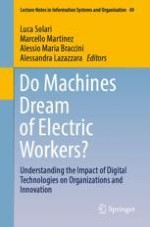In our rapidly changing world, digitalization is often either the key to survival or the driving force behind organizations' success. This book examines the impact of digitalization on organizations and the challenges it poses. It explores ways of redesigning work, improving organizational performance, developing employee skills, and creating new forms of competition in the market. In this context, not only the challenges for organizations but also those for the field of organizational studies are considered.
This compilation is based on a selection of the best papers presented at the annual workshop (WOA2020) of the Association of Italian Organization Studies Academics (ASSIOA), held at the University of Milan, Italy in February 2020. The diverse road range of perspectives offered makes the book relevant for scholars and practitioners alike.
